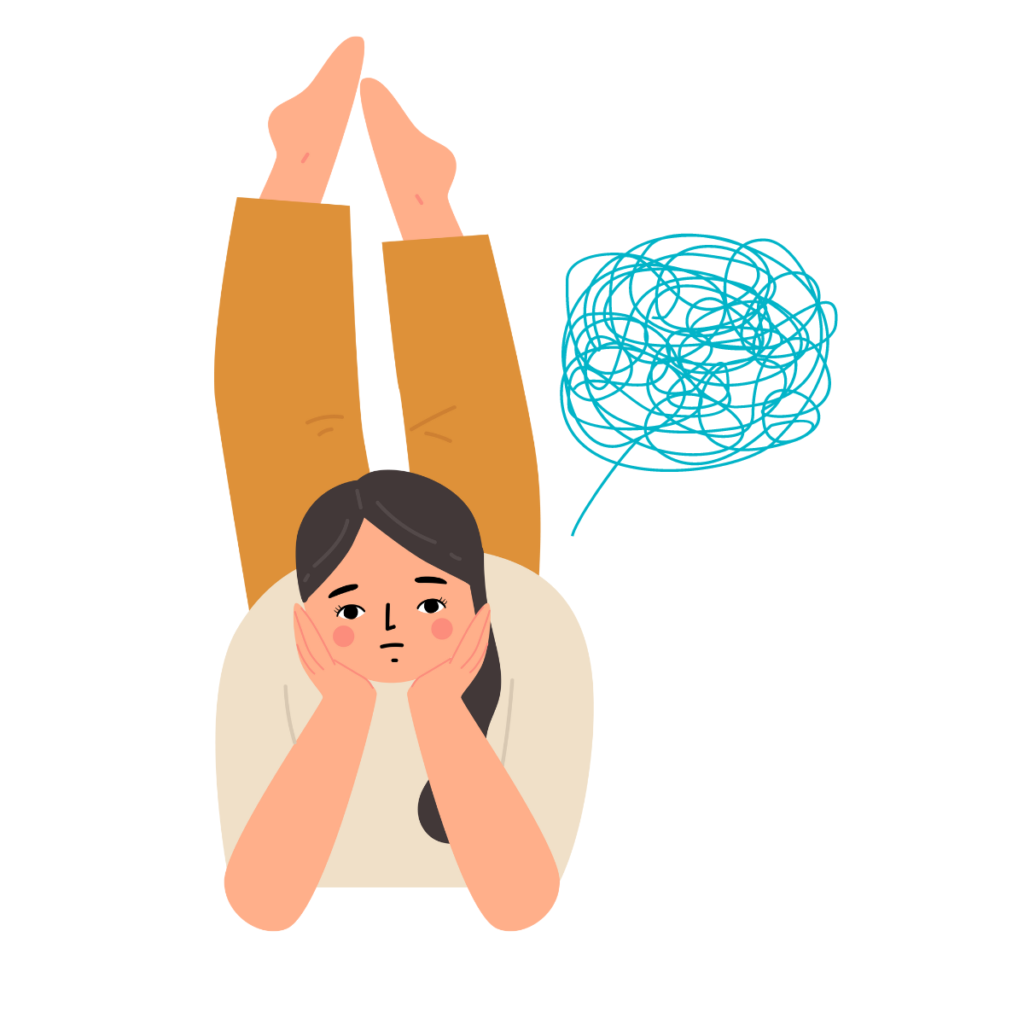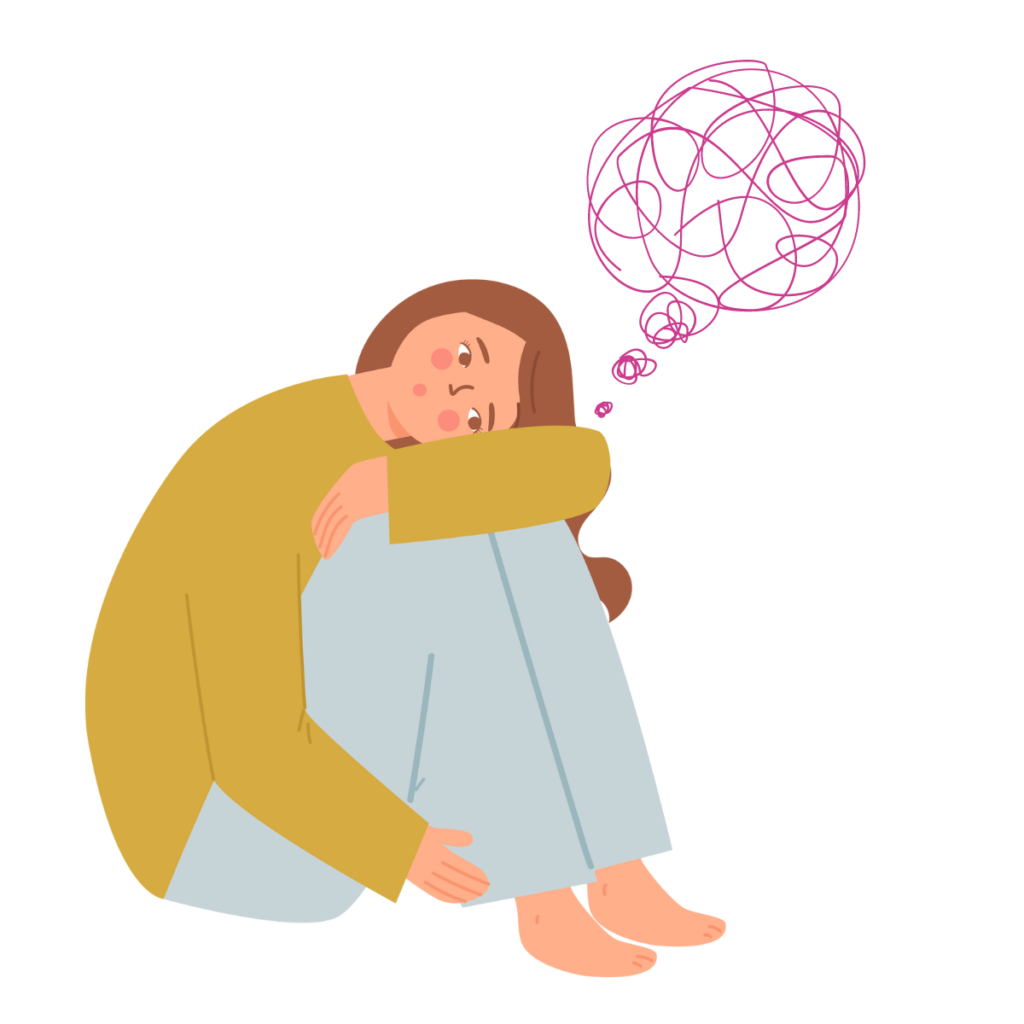I am feeling very vulnerable during pregnancy.

You haven’t even met your baby yet, but you likely feel completely in love with this little human growing inside of you. It’s the deepest, truest, and most unconditional love, making you feel like the strongest person in the world, yet also more vulnerable than ever.
Feeling more vulnerable during pregnancy is a real feeling, affecting some women more than others depending on different factors, but to some degree common in all of us. While vulnerability may seem strictly like a negative feeling associated with weakness, it could also be a wonderful foundation for growing into a more beautiful version of yourself.
But first, let’s start with the basics… what does vulnerability mean?
What does vulnerability mean?
Vulnerability refers to the state of being susceptible to harm, injury, or emotional distress. It involves a combination of factors that increase the likelihood of experiencing negative outcomes or being adversely affected by external stressors, challenges, or threats. Vulnerability can manifest in various forms, including physical vulnerability (e.g., susceptibility to illness or injury), emotional vulnerability (e.g., sensitivity to stress or negative emotions), social vulnerability (e.g., lack of social support or resources), or systemic vulnerability (e.g., exposure to systemic injustices or inequalities).
Is vulnerability a human feeling for all of us?
Yes, vulnerability is a universal human experience that is inherent to the human condition. Regardless of age, gender, culture, or background, everyone encounters moments of vulnerability at different points in their lives. Vulnerability arises from various situations, such as facing uncertainty, experiencing emotional exposure, taking risks, or navigating challenges. It is a fundamental aspect of human existence and plays a significant role in shaping our relationships, personal growth, and resilience.

Why do I feel so vulnerable during pregnancy?
Pregnancy is one of the most vulnerable moments in a woman’s life. If you feel overwhelmed by this feeling, please seek assistance.
Overall, the combination of physical, emotional, and social factors during pregnancy can contribute to a sense of vulnerability. Here are one by one factors:
Physical Changes: Pregnancy brings significant physical changes to your body, including weight gain, hormonal fluctuations, and discomforts such as nausea, fatigue, back pain… and so on… These changes can make you feel more vulnerable and physically exposed.
Emotional Roller-coaster: Pregnancy is often accompanied by a range of emotions, including joy, excitement, anxiety, and fear. You may feel vulnerable due to the uncertainty and unpredictability of pregnancy, as well as concerns about your health, the health of your baby, and their ability to handle the challenges of motherhood.
Responsibility for Another Life: Pregnancy marks the beginning of a lifelong commitment to caring for and nurturing another life. This responsibility can feel overwhelming and daunting, especially for first-time mothers, leading to feelings of vulnerability and self-doubt.
Body Image Concerns: Many expectant mothers experience changes in their body image during pregnancy, which can affect their self-esteem and confidence. As their bodies transform, they may feel more exposed, self-conscious, or vulnerable about their appearance. But, by the record… I am sure you look beautiful!!!!
Fear of the Unknown: Pregnancy and childbirth are accompanied by a degree of uncertainty and unknowns, particularly for first-time mothers. Fear of labor and delivery, concerns about complications or health issues, and worries about the future can all contribute to feelings of vulnerability.
Transition to Parenthood: Pregnancy represents a major life transition, as expectant mothers prepare to become parents and take on new roles and responsibilities. This transition can trigger feelings of vulnerability as mothers-to-be navigate changes in their identity, relationships, and sense of self.
Social and Cultural Expectations: You may also feel vulnerable due to societal and cultural expectations surrounding pregnancy and motherhood. Pressure to meet certain standards or fulfill traditional roles can heighten feelings of vulnerability and self-doubt. You are doing great and so much growing a baby inside of you, don’t let anyone ever make you feel you are not enough!!
Why does vulnerability make us feel bad?
This is due to a combination of factors:
Fear of Rejection or Judgment: When we allow ourselves to be vulnerable, we open ourselves up to the possibility of rejection, criticism, or judgment from others. This fear of negative evaluation can lead to feelings of insecurity, self-doubt, or shame.
Discomfort with Uncertainty: Vulnerability often involves stepping into the unknown and relinquishing control over outcomes. This uncertainty can trigger feelings of anxiety or discomfort.
Cultural and Social Conditioning: Vulnerability is often viewed as a sign of weakness being undesirable or shameful, leading to feelings of guilt or embarrassment.
Perceived Threat to Self-esteem or Identity: Revealing vulnerabilities may challenge our sense of self-worth, competence, or identity. This threat to our self-concept can trigger feelings of inadequacy, or defensiveness.
Lack of Support or Validation: When we share our vulnerabilities with others, we may hope for understanding, empathy, or support in return. However, if we do not receive the validation or support we seek, it can exacerbate feelings of loneliness, rejection, or emotional pain.

While vulnerability can be uncomfortable or challenging at times, it is important to recognize that it is a natural and essential aspect of the human experience.
Indeed, vulnerability can become a place to grow into a new version of yourself.
How can this ever be a good feeling for growth? Recognizing and addressing vulnerabilities is essential for promoting resilience, well-being, and effective coping strategies.
How can I embrace feeling vulnerable and turn it into an opportunity for personal growth?

Embracing vulnerability as an opportunity for personal growth involves a process of self-awareness, acceptance, and courage. Here are some steps you can take to embrace vulnerability and use it as a catalyst for personal growth:
Acknowledge Your Feelings: Recognize and accept your emotions, including feelings of vulnerability, fear, or discomfort. Allow yourself to sit with these feelings without judgment or resistance.
Identify Your Triggers: Reflect on situations, experiences, or interactions that trigger feelings of vulnerability for you. Understanding your triggers can help you anticipate and navigate challenging situations more effectively.
Practice Self-Compassion: Treat yourself with kindness, understanding, and compassion, especially when you’re feeling vulnerable. Remind yourself that vulnerability is a natural and universal experience, and it doesn’t diminish your worth or value as a person.
Challenge Negative Beliefs: Challenge any negative beliefs or self-limiting thoughts that contribute to feelings of vulnerability or inadequacy. Replace these beliefs with more empowering and compassionate self-talk.
Step Outside Your Comfort Zone: Take intentional steps to step outside your comfort zone and embrace vulnerability in small, manageable ways. This could involve sharing your thoughts or feelings with a trusted friend, trying new experiences, or expressing yourself creatively.
Seek Support: Reach out to supportive friends, family members, or professionals who can provide encouragement, validation, and guidance as you navigate feelings of vulnerability. Having a supportive network can make the process feel less daunting and more empowering.
Practice Mindfulness: Cultivate mindfulness and present-moment awareness to become more comfortable with discomfort and uncertainty. Mindfulness practices such as meditation, and deep breathing, can help you ground yourself in the present moment and cultivate a sense of calm and acceptance.
Focus on Growth and Learning: Approach vulnerability as an opportunity for growth, learning, and self-discovery. Instead of viewing it as a weakness, re-frame vulnerability as a strength that allows you to deepen your connections, expand your horizons, and develop resilience.
Celebrate Your Progress: Celebrate your progress and accomplishments, no matter how small. Recognize and appreciate the courage it takes to embrace vulnerability and step into the unknown.
Embracing vulnerability is a courageous and transformative journey that can lead to greater self-awareness, authenticity, and connection with yourself and others. By approaching vulnerability with openness, curiosity, and compassion, you can harness its power to fuel personal growth and transformation in your life.

Can I control feeling less vulnerable?

While you may not be able to eliminate feelings of vulnerability entirely, the strategies above can help you navigate them more effectively and build resilience in the face of life’s challenges. Remember that vulnerability is a natural and universal experience, and seeking support and practicing self-care can help you cope and thrive during times of uncertainty.
Remember! You are stronger than you think, and you have the best ever purpose to become more resilient and positive, and that reason is growing inside of you… now take a deep breath! And carry on, because you got this!
